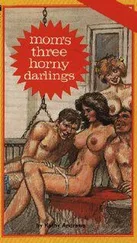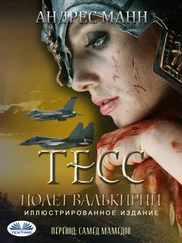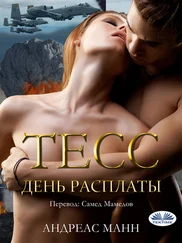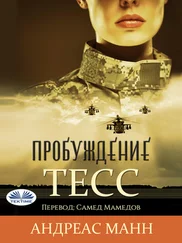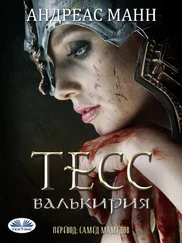Norton, Andre - Moon of Three Rings
Здесь есть возможность читать онлайн «Norton, Andre - Moon of Three Rings» весь текст электронной книги совершенно бесплатно (целиком полную версию без сокращений). В некоторых случаях можно слушать аудио, скачать через торрент в формате fb2 и присутствует краткое содержание. Жанр: Старинная литература, на английском языке. Описание произведения, (предисловие) а так же отзывы посетителей доступны на портале библиотеки ЛибКат.
- Название:Moon of Three Rings
- Автор:
- Жанр:
- Год:неизвестен
- ISBN:нет данных
- Рейтинг книги:4 / 5. Голосов: 1
-
Избранное:Добавить в избранное
- Отзывы:
-
Ваша оценка:
- 80
- 1
- 2
- 3
- 4
- 5
Moon of Three Rings: краткое содержание, описание и аннотация
Предлагаем к чтению аннотацию, описание, краткое содержание или предисловие (зависит от того, что написал сам автор книги «Moon of Three Rings»). Если вы не нашли необходимую информацию о книге — напишите в комментариях, мы постараемся отыскать её.
Moon of Three Rings — читать онлайн бесплатно полную книгу (весь текст) целиком
Ниже представлен текст книги, разбитый по страницам. Система сохранения места последней прочитанной страницы, позволяет с удобством читать онлайн бесплатно книгу «Moon of Three Rings», без необходимости каждый раз заново искать на чём Вы остановились. Поставьте закладку, и сможете в любой момент перейти на страницу, на которой закончили чтение.
Интервал:
Закладка:
Moon of Three Rings by Andre Norton
KRIP VORLUND I
What is space? It is a wilderness beyond any man's exploring, even if he had a hundred, a thousand life spans in which to prowl the lanes between solar systems and planets, to go questing, to seek ever new and newer knowledge of what may lie beyond the next sun, the next system. Yet to such seekers comes also the knowledge that there must be no boundaries to man's belief, but rather an acceptance of wonders which would leave the planet-bound, those who follow familiar trails, incredulous and refusing to accept the evidence of their own senses.
Those who do venture ever into the unknown— the First-in Scouts of Survey, the explorers, and not the least, the Free Traders who pluck a living from the fringes of the galaxy—to these it is a commonplace thing to discover that the legends and fantasies of one planet may be lightsome or grim truth on another world. For each new planet-fall brings its own mysteries and discoveries.
Which is perhaps too much of a pseudo-philosophic beginning for this account—save I know of no better, not being used to making more than trade reports for that repository of some very strange facts—the League of Free Traders. When a man tries to deal with the unbelievable, he finds it a fumbling business, in need of some introduction.
First-in Scouts, from their unending quest for new worlds and systems, turn in many weird and strange reports to Survey. But even the planets opened to human contact by their efforts can yield hidden secrets, after they have been pronounced favorable ports for wandering ships, or even for pioneer settlements .
The Free Traders who exist upon cross trade, having no fat plums to sustain them as do the Combines of the inner planets with their monopolies, face now and again things that even Survey does not know. Thus it was on Yiktor—in the time of the Moon of Three Rings. And who better can make this report than I, to whom this happened, though I was only assistant cargomaster of the Lydis , the last-signed member of her crew into the bargain.
Over the years the Free Traders, because of their way of life, have become almost a separate race in the galaxy. They own no one world home, nor do some ships possess a home port, but wander always.
So it is that among us the ship itself is our only planet, and we look upon all without its shell as alien. Although not in this sense are we xenophobic, for it is part of our nature that we have a strong bent toward exploration and acceptance of the outer.
Now we are born to the trade, for families live within the larger ships, it being decided long since that such was better for us than casual and transitory connections in ports which might lead to a man's losing his ship. The big space-borne ports are small cities in themselves, each operating as a central mart for a sector where large deals are carried out, where those who have a mate and children may enjoy a kind of home life between voyages.
But the Lydis was a bachelor ship of the D class, intended for risky rim trading where only men without ties would venture. And I, Krip Vorlund, was well content to so set my feet on the ladder of trade. For my father had not returned from his last voyage years back. And my mother, after the custom of the Traders, had married again within two years and followed her new mate elsewhere. So I had no one to speak up for me at the time of assignment.
Our captain was Urban Foss, well regarded as a coming man, though young and sometimes thought to be a shade reckless. But that suited his crew, who were willing to have a leader who might by some gamble advance them well into the ranks of those who had solid credit at the trade center. Juhel Lidj was the cargomaster, and my only quarrel with him, though he was no light taskmaster, was that he guarded some of his trade secrets jealously, leaving me to ferret hints for myself. But perhaps that was the best way of training, putting me ever on the alert when I was on duty, and giving me opportunity to think much when I was not being official.
We had made two good voyages before we landed on Yiktor, and undoubtedly we felt that we were perhaps better than we were. However, caution is never forgotten on a Free Trader. After we planeted, before we opened hatches, Foss had us all in to listen to the guide tape carrying all the warnings for this world.
The only port, such as it was—for this was truly a frontier world—lay outside Yrjar, a city as far as Yiktor knew cities, in the middle of a large northern land mass. We had timed our arrival carefully for the great trade fair, a meeting of merchants and populace from all over the entire planet, held at two-planet-years intervals at the end of the fall harvest season.
Like fairs on many other worlds, this gathering had once had, and still possessed as a pallid shadow, religious significance, being the supposed date when an ancient folk hero had met and vanquished some demoniacal enemy to save his people, died as a result of his exertions, and thereafter been entombed with pomp. The people still enacted a kind of play of this feat, followed by games in which the lords vied with one another, each backing his personal champions. The winners of each contest carried off enough awards and prestige—not for himself alone but also for his patron—to last until the next fair.
II
The government of Yiktor was at the feudal stage. Several times in its history kings and conquerors had risen to unite whole continents under their sway for perhaps their lifetimes. This unification sometimes extended into the following generation, or maybe two, but eventually fell apart through quarrels of the nobles. The pattern had held constant with no advancement. The priests, though, had vague traditions that there had been an earlier civilization which had risen to a position of greater stability and technical knowledge.
No one knew the reason for the stagnation at this step of civilization, and no native appeared to care, or to believe there could be another way of life. We had arrived during one of the periods of chaos wherein half a dozen lords snapped and snarled at one another. But none had the backing, audacity, luck, or whatever was demanded of a leader, to take over. Thus the existing balance of power was a delicate thing.
This meant for us Traders brain lock, weapon lock, nuisances though they were and much as we disliked them.
Far back in Free Trading, for their own protection against the power of the Patrol and the wrath of Control, the Traders themselves had realized the necessity of these two safeguards on primitive planets. Certain technical information was not an item to be traded, no matter how high the inducement. Arms from off-world, or the knowledge of their manufacture, were set behind a barrier of No Sale. When we planeted on such a world, all weapons other than belt stunners were put into a lock stass which would not be released until the ship rose from that earth. We also passed a brain lock inhibiting any such information being won from us.
This might seem to make us unarmed prey for any ambitious lord who might wish to wring us hard for such facts. But the law of the fair gave us complete immunity from danger—as long as we stayed within the limits set by the priests on the first day.
For following almost universal galactic custom, one which appeared to be spontaneous and native to every world where such gatherings had existed for ages, the fair ground was both neutral territory and sanctuary. Deadly enemies could meet there and neither dared put hand to weapon. A crime could be committed elsewhere and, if the criminal reached the fair and was law-abiding therein, he was safe from pursuit or punishment as long as the fair continued. The gathering had its own laws and police, and any crime committed within was given speedy punishment. So that this meeting place was also a site for the cautious sounding out between lords for the settlement of feuds, and perhaps the making of new alliances. The penalty for any man breaking the peace of the fair was outlawry—the same as a sentence of death, but perhaps in its way, more torturous and lingering for the criminal.
Читать дальшеИнтервал:
Закладка:
Похожие книги на «Moon of Three Rings»
Представляем Вашему вниманию похожие книги на «Moon of Three Rings» списком для выбора. Мы отобрали схожую по названию и смыслу литературу в надежде предоставить читателям больше вариантов отыскать новые, интересные, ещё непрочитанные произведения.
Обсуждение, отзывы о книге «Moon of Three Rings» и просто собственные мнения читателей. Оставьте ваши комментарии, напишите, что Вы думаете о произведении, его смысле или главных героях. Укажите что конкретно понравилось, а что нет, и почему Вы так считаете.





